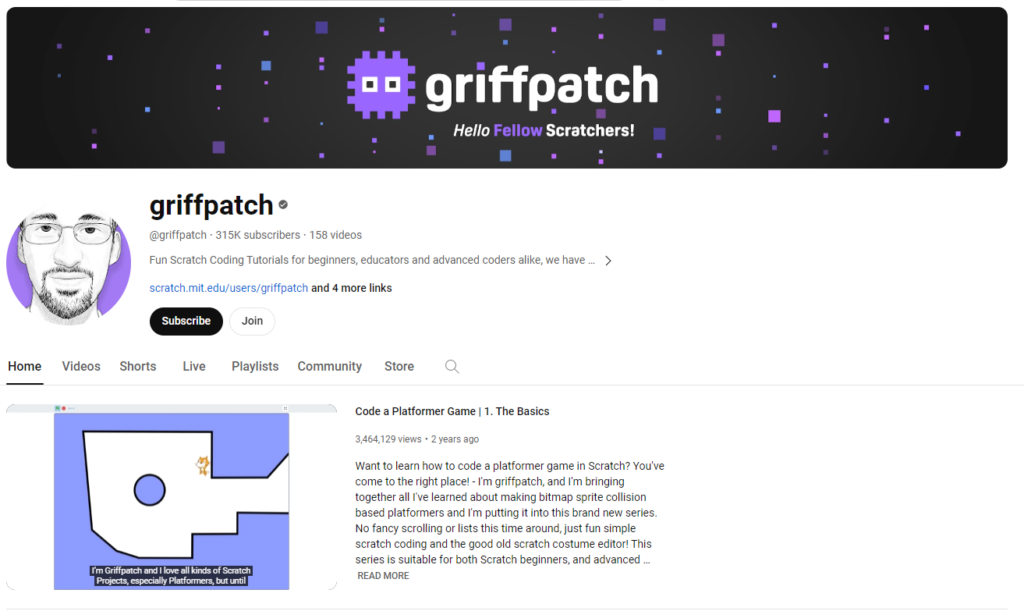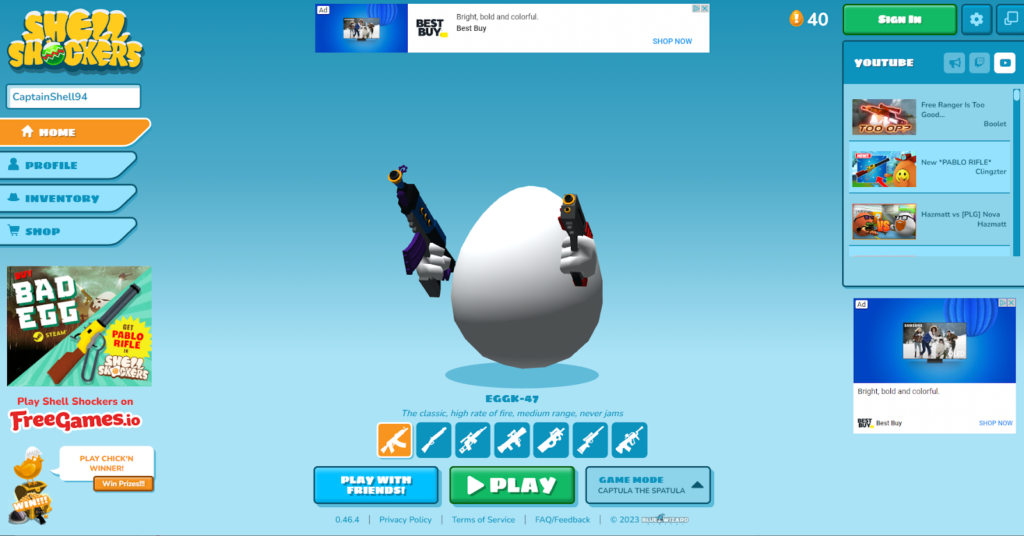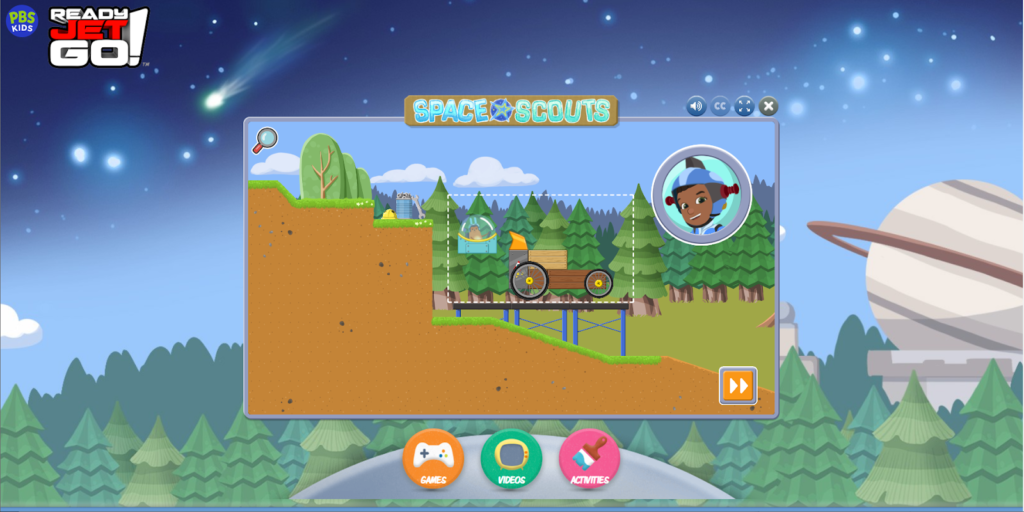
Here is a situation: you are a parent who knows how to make video games. You have a young child and you make a little computer game for them. And they love it! It is educational in nature, safe for kids, and they are excited to hang out with you. So you think, if my kid likes this… other kids would like it, I should totally sell this on Steam!
I have seen this heartwarming story many times and I am so happy for you and your child. It is really neat to make a game with a kid (I have done this myself)! However, I hate to be the bearer of bad news, but it won’t sell. You can’t sell educational games on Steam.
I also think people try to make kids games is because it seems like a game for kids SHOULD be easier. My kid gets excited about EVERYTHING. Like if I draw a face on a banana he thinks it is the coolest thing in the world. If he is that easy to entertain then making a game for kids must be the easier than selling to jaded adults.
I have had a number of parents come to me asking if they can sell educational games on Steam so I thought I would just write a post summing up my thoughts (and why it won’t work).
The 4Ps of marketing
Successful marketing must have a perfect synthesis of 4 different factors that are called the 4P’s:
- Product
- Price
- Promotion
- Place (sometimes also called Platform)
If one of those is out of alignment you won’t get sales (or they will underperform).
For instance if you sell a buggy game, your PRODUCT is bad and it will fail.
If you make a good game but your PRICE is $1,000 per copy, you will fail.
PLACE is just where you sell your product. I focus entirely on Steam so many people ask me about selling their game on Steam.
Unfortunately Steam is the worst PLACE to sell an educational game. Yes I know it is a games store and has a pretty wide selection of titles from lots of different genres, but, the audience who likes to hang out on Steam is a bit of a rough crowd.
If I were to close my eyes and think of the stereotypical Steam audience it would kind of be a line of guys waiting for a Metal concert.
You trying to sell an educational game on Steam is like putting Mr. Rogers at the front of that line and trying to teach them the importance of taking the time to think about someone who has helped you.

I also picture Steam as the flesh fair from Speilberg’s A.I. Artificial Intelligence. You selling a kids game is just like LeVar Burton trying to get them to put down their flaming chainsaws and settle in for a nice book.
Steam is not the place for educational games.

Poor sales
I was thinking about the trouble with Steam and educational games when I checked out the Bluey Game launch last month.

We are a Bluey household (the best episode is Puppets, wait for the end) and pretty much any household with kids under 12 are too – it is the 6th most streamed TV series in the US. That is huge!
But the Bluey game launched 1 month ago on Steam and only has 195 reviews. The game has earned some bad reviews from critics but even so, you would think a game with this level of popularity would sell more.
And it isn’t just Bluey. If I look at VGInsights for games tagged as “Education” you can see that the median income is a paltry $827.
I always warn people how hard it is to sell Platformers on Steam but they make almost twice as much by comparison with a median revenue of $1325.
Nobody goes to Steam to buy educational games. It is the wrong PLACE for them.
How to sell educational games
I write about Steam a lot but that doesn’t mean it is the only place to sell and buy games. Kids do play games. It’s just not on Steam.
So if you really really must make an educational game, here is how to release it and MAYBE get it to work. But you probably won’t make much money. Not that that is the marker of success! I just bring it up because people always say “Well I made this game for my kid, can I make money from it too?”
Free web games playable in a browser
One day I was picking my kid up from the school cafeteria and I saw about half a dozen kids each with their school-issued Chrome books having an awesome time playing a game together. It was a picture-perfect moment showcasing the joy that games can bring but I didn’t pull out my phone to take a picture because that would be creepy. So, I recreated that moment using the magic of Chat GPT.

What were those gamers at my kid’s school playing together? I peeked and it was Planet Clicker.

Planet Clicker is a silly little incremental game but the kids were turning into a multiplayer game by seeing who could get the highest score in 10 minutes.
Planet Clicker was made entirely in the open source, free game toolkit created by MIT called Scratch.
Kids don’t have gaming rigs, they usually spend their time on school-issued-laptops that only run browser games. The schools also block every fun website but keep https://scratch.mit.edu/ open because many STEM classes use the site to teach kids how to program.
So there is actually an entire “store” of games made in the very rudimentary gamemaking tool called Scratch. The Scratch Store is giving real Flash portal vibes from the early 2000s:

So if you really want to make a game that appeals to kids, release the game in the PLACE where they hang out: the Scratch portal. (Side note, your game must be made in scratch to be listed there).
Now, you probably won’t make much money from it directly because everything there is free. However, the developer who has the most players is griffpatch and he runs an educational kids programming channel on youtube and has over 315,000 subscribers. I don’t know if he makes a full time living doing this, but he is reaching a lot of kids.

Free web games playable in a browser but teachers hate you
I first heard about Shell Shockers from Simon Carless’s coverage of them in this great post.
Shell Shockers is an FPS that uses very low fidelity graphics so that it can run in the browser on a Chrome book (remember almost all US kids are issued one by the school.) The game is monetized using ads and isn’t the slightest bit educational but kids love it.

School administrators hate it though and block the Shell Shocker’s url at the firewall level. So the Shell Shockers devs created mirror URLs that sound educational so they don’t trigger the filter like geometry.monster and algebra.vip and mathdrills.info.
Create your own platform to sell educational games
If you really want to make “capital E” EDUCATIONAL games you might be turned off by these other platforms like Steam and Scratch store. They don’t actually seem that educational. So if you don’t like the vibes of those other stores, just make your own platform. Seriously, there is no law in gaming that your game must appear on Steam, Epic, GoG, etc.
Building your own education portal is essentially what ABCMouse did. ABCMouse is just an educational site with a bunch of games for kids. It is monetized through a monthly subscription and they probably are doing alright for themselves. According to this site, the ABCMouse parent company has raised over $481.5M over 4 funding rounds.
To sell a game on your own site you have to build a whole reputation around teaching kids that subject. So let’s say you are making an educational game about teaching kids to read and write Japanese, you would have to create trust by publishing a bunch of articles about Japanese. Make a curriculum. You will probably also have some videos. You would build an entire learning environment to teach Japanese and then as part of that package, you also happen to have a game attached to it.
The good thing about building a platform is you have more control over the PRICE. ABCMouse.com charges $12.99 a month! Compare that to where the typical indie game sells for $10 to own it forever. Platforms set price expectations. So if you tried to release that educational game on Steam and charge $13 / month you would get review bombed almost instantly. But there is no similar expectation when you build the platform. There is nothing to compare it against and it seems totally reasonable.
Work for hire
You probably just hoped to turn this fun weekend project you made with your kid into something and here I am telling you that you have to create a whole platform forst. It seems like a lot of work but, that is what it takes to build the trust of parents. No parent is just going to let you spend time with their kid. You must build up this reputation across years like ABCMouse did.
However, there is a shortcut: license your game to a company that already has done the hard work of building up the trust of parents.

My kid’s STEM teacher is always sending them to PBS Kids games. PBS is the American public television and media company that helped create Sesame Street. It is the gold standard for educational content in the US.
The pbs.org site has free games to play specifically built for kids. All the PBS games are surprisingly really well made and fun! Check them out here. After spending enough time with the games I realized that they seemed a little TOO competently made to have been developed in house at PBS. So I did some digging and found out that they are made by Gopherwood Studios based out of Hickory, North Carolina. According to their LinkedIn page they are “a small team of developers that specialize in the creation of great HTML5 games, websites, and online interactives.”
I found the original dev log behind Space Scouts and they said explicitly that the idea for Space Scouts “started with my nearly-endless enjoyment playing with Fantastic Contraption and my fascination with Lego bricks.”
Space Scouts is basically Fantastic Contraption but is themed with the licensing of this PBS show Ready Jet Go!
These kids games take direct inspiration from indie games like Fantastic Contraption made by Northway Games.
So maybe you could license your game out to a kids brand that is looking for high quality educational games. But notice how all these games are playable in the browser. Kids games need to have 0 barrier to entry.
Just make a fun game and don’t target kids
If you don’t have kids, you cannot understand how much Minecraft, Among Us, and Mario just absolutely dominate the collective mindspace of the under 12 crowd.
The developers of those games weren’t trying to make “kid” games. In fact, Among us is about stabbing people in the back and leaving dead bodies around with visible bones. If I were trying to design a game that kids wanted to play I wouldn’t probably make that design choice.

There is a tendency when people make kids’ games to make them overly saccharine or make them too cute. People also like to make kids games with these grand aspirational concepts like teaching kids about the rainforest or self-actualization.
Really, kids are nasty little buggers and they want something that would terrify us adults. You can just yell “Huggy Wuggy!” at a playground and half the kids will cheer.

If you look at the top selling Steam games that are tagged with “Education”, you will notice that they are just games targeting everyone. There is nothing cute or cuddly about them. They are deep simulation games. Kerbal Space Program is really a game that goes deep on physics and orbital mechanics. It wasn’t branded as “Hey kids! Let’s Learn about SPACE!”

Final advice
So what does this mean? What is my advice?
If you want to hang out with your kids and make games, you should totally do that.
If you want to try to sell that game, you can try but it requires a lot more work than you probably were expecting.
Yes Steam is full of games, but it really is an adult market. It is a place where adults buy games. It is a place for mature tastes. Bringing an educational game to Steam is like Shari Lewis and Lamb Chop going to the line outside of a nightclub and spending the evening trying to teach everyone about recycling. Wrong place, wrong message.

The real reason it is so hard to market kids games
The kids market is rightfully very difficult to get into because parents watch over what their kids play. They don’t want their kids hanging around an adult space like Steam. They also don’t want their kids overly monetized and shown a bunch of junky ads or potentially getting their credit card hit with thousands of dollars of in-app-purchases.
It is harder to market to kids because you are marketing to two people: Kids and their parents. It has to appeal to both.
In the end, it is probably easier to just market to adults and make what they really want: a crafty-buildy-game which Steam likes and then maybe kids will find it. But that would have been my advice anyway even if you weren’t trying to target kids.